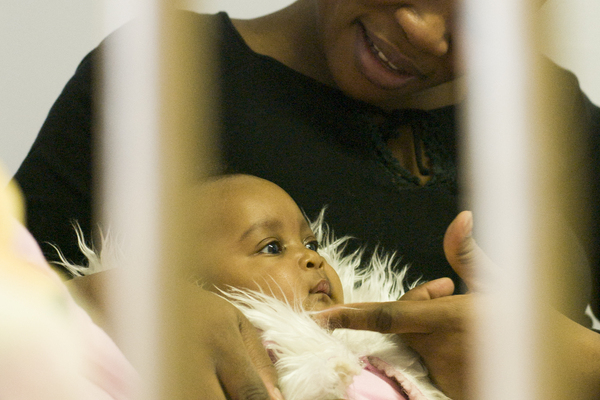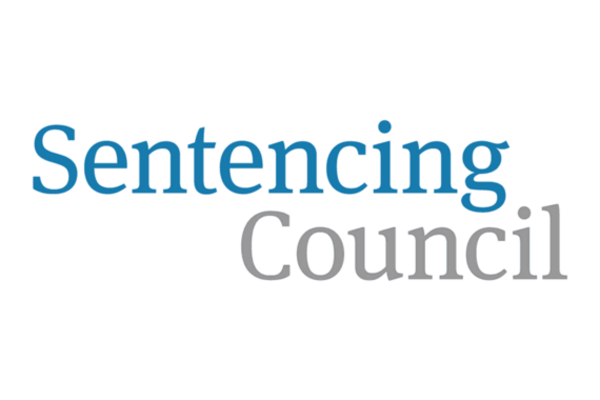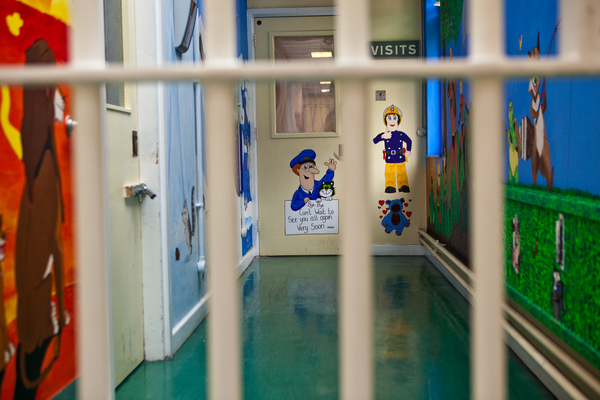Birth Companions’ Director Naomi Delap and Head of Policy Kirsty Kitchen comment on publication of the Chief Social Worker’s review of decision-making in applications to prison Mother and Baby Units (MBUs).
At Birth Companions, we are pleased to have played our part in the Chief Social Worker’s MBU review. This project, conducted with What Works for Children’s Social Care, was shaped and informed from the outset by members of Birth Companions’ Lived Experience Team. Its findings shine a powerful spotlight on the urgent need for a more robust, consistent and rights-driven approach in the prison Mother and Baby Unit (MBU) application process.
Today’s report highlights significant failings and raises fundamental questions about the legitimacy of the system currently used to decide whether mothers can have their babies and infants in their care while they are in prison. In too many cases, this system results in avoidable, unjust and traumatic separations when women are refused a place on an MBU.
The impact of these separations on babies, mothers and families are life-changing.
The role of children’s social care
Under the current arrangements, decisions about whether to grant an MBU place or not should be informed by a report from the children’ social services team in the area the mother was living in before coming to prison, and a social worker should be part of the board meeting at which that decision is made.
The Chief Social Worker’s review shows local authority children’s social care teams across the country are failing to engage in these crucial assessments and hearings. It also found evidence of social workers’ prejudicial views about the appropriateness of MBU environments for babies and infants, and poor understanding of key issues such as domestic abuse and mental health.
Of the 39 applications considered by the review where an MBU place was refused, significant concerns were raised about 14 cases, and only 25 of the decisions were deemed ‘reasonable’. In almost a quarter of rejected cases there was no report from a social worker, and in others the assessments provided were out of date and based on historic concerns.
It is notable that only 4% of social workers polled by the review said they felt confident in their knowledge about the application process for an MBU placement.
Women on remand
The report highlights particular problems relating to applications from women held on remand. In some cases social workers’ verdicts were based on the nature of the alleged offence and potential sentence length, before that woman had been found guilty or a judge had considered sentence options. We have seen recent examples of this among women in our own services at Birth Companions, including situations where social workers have interpreted sentencing guidelines, going far beyond their remit and training. It seems that all too often women are being ‘written off’ by those who should be working to support and protect them and their children.
The MBU application and board process
The review also identifies many areas of concern relating to the current application and hearings process. These include a lack of oversight, inspection and scrutiny around the decision-making by MBU boards, and no moderation to establish consistency. The report highlights the fact that Board Chairs are not public appointments, and the four current Chairs, responsible for all hearings, have been in place for extended periods of time: two for 22 years, one for 17 and one for 16 years. These individuals operate with no professional case supervision.
The lack of legal representation and advocacy support for women subject to MBU board hearings is also notable. Of the 39 rejected cases reviewed, only 10 mothers had support to attend the hearing and to make sure their own views were taken into account.
Decisions on MBU applications should not be based on the ‘inevitability’ of later separation, yet in some cases this was cited as the only reason against board approval (while in many approved cases this had not been thought an issue). This marks a real failure to recognise the crucial importance of the attachment between mother and baby in the first two years of a child’s life.
It is clear that the current MBU system, which sees many mothers and babies separated from each other every year, is operating in a markedly different way to the family court system outside prisons. Despite their own shortcomings, the family courts are, as the report states, “subject to myriad checks and balances and intense public interest” as well as the involvement of far more professionals in making crucial decisions with far-reaching consequences for all involved.
We welcome the Chief Social Worker’s recognition of the “issues which, in the interests of family justice, need to be resolved,” including proper consideration by the Ministry of Justice and HMPPS “as to whether providing legal representation to mothers as part of the application process would improve outcomes.” The review’s recommendations also include changing the governance of MBU boards; making the Independent Chair role a formalised public appointment with a fixed term; ensuring greater scrutiny; and providing stronger powers to require input from relevant professionals. All these recommendations have extremely far-reaching implications and require urgent, objective review.
Lack of information and data
Through reviewing these cases, we can see the shocking gap in our current knowledge about the numbers, circumstances and outcomes of the children impacted by maternal imprisonment. For example, pre-sentence reports (PSRs) prepared by probation officers should include information about women’s caring responsibilities and be used to inform sentencing decisions. This report, however, found that PSRs had been provided in only two out of 106 cases examined.
Clearly, better information is needed to inform and improve decision-making. As well as a dramatic improvement in the provision of PSRs, we need to understand how many babies and infants are separated from their mothers through prison custody, and where those infants go on to be placed. We also need urgent investigation into the intersection between MBU application outcomes and mothers’ ethnicity, to identify any particular issues relating to racism and discrimination.
Reducing the numbers of mothers in custody
While the concerns raised by this report are being addressed, we know that the vast majority of pregnant women and mothers of infants would be better supported to address the issues behind their offending in the community. The majority of women’s offending is rooted in experiences of trauma and abuse, and most women are victims of more serious crimes than those they are themselves criminalised for. The aim should be not to increase the number of MBUs, or the uptake of available places, but to reduce the number of pregnant women and mothers entering the prison system through remand, sentence or recall each year. Until that happens, it is vital to ensure every decision on whether or not to separate a mother from her baby is sound and just.
To discuss this work or any of the issues raised, please contact Kirsty Kitchen.





